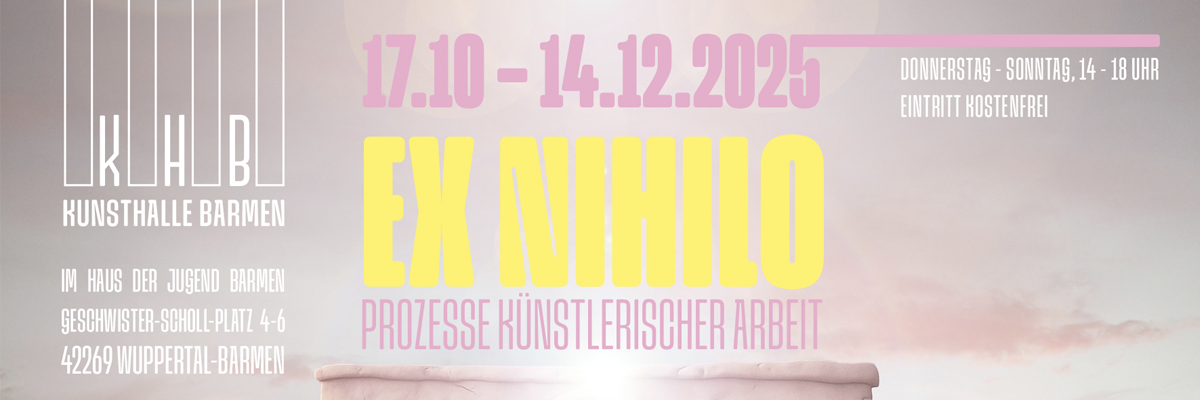
Oda Iselin Sønderland
Elsker
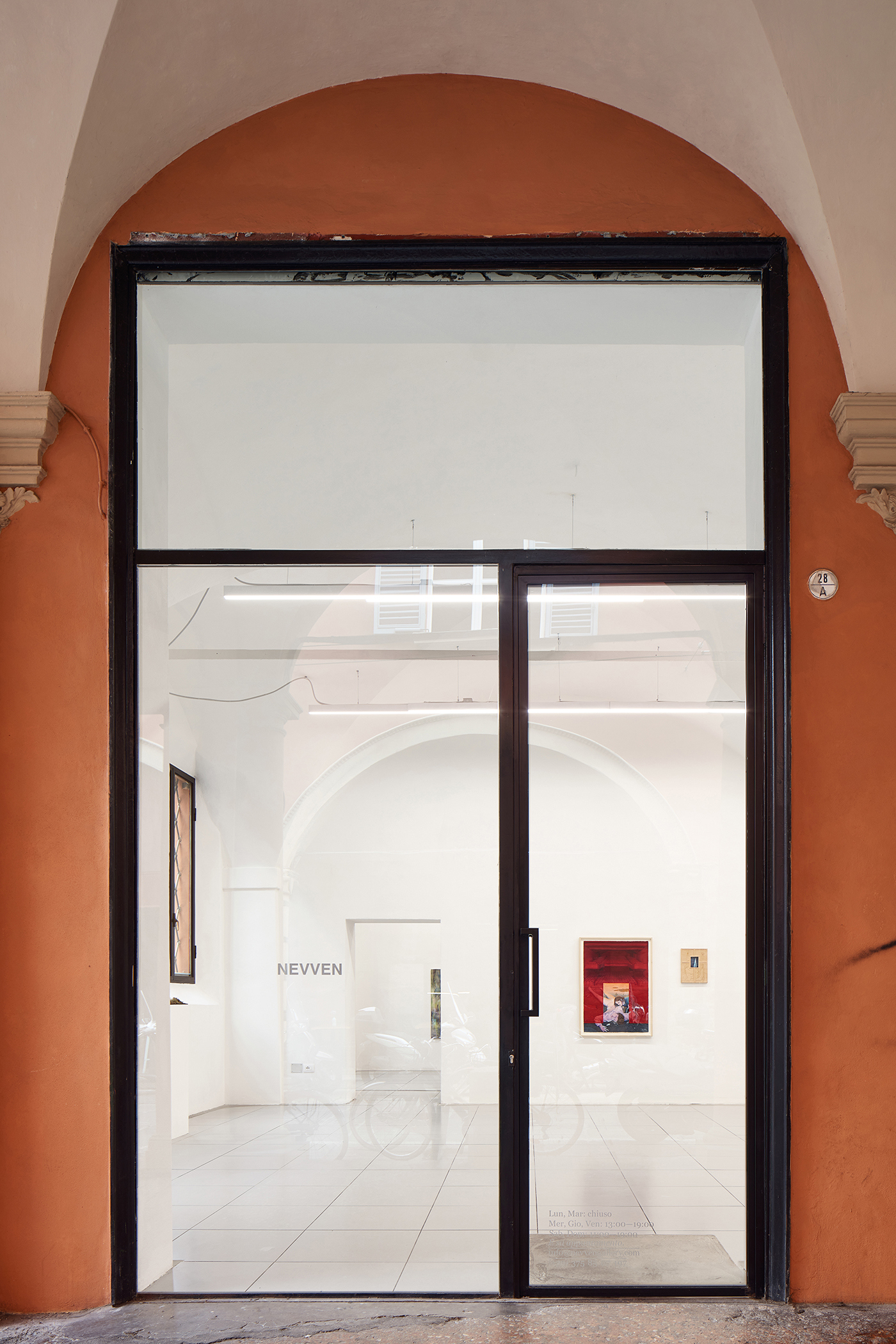
Oda Iselin Sønderland, "Elsker" installation view.
Advertisement
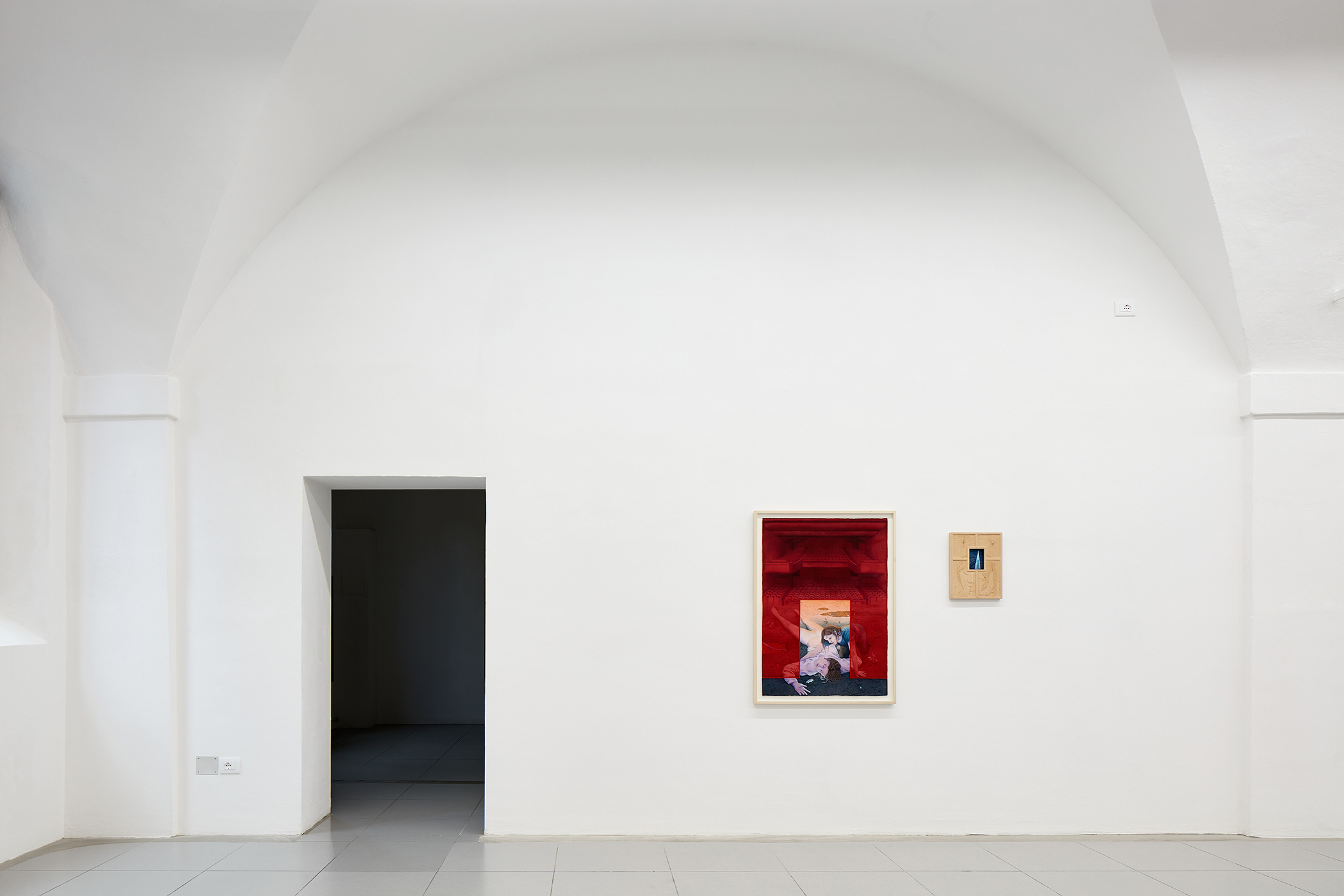
Oda Iselin Sønderland, "Elsker" installation view.
![Oda Iselin Sønderland, "Sort Hull" ["Black Hole"], 2023 (Watercolour, flashe and gouache on paper, frame, 115,5 x 84,2 cm).](https://backend.kubaparis.com/submissions/2024/06/13/Elsker/3.jpg?v=1718296438)
Oda Iselin Sønderland, "Sort Hull" ["Black Hole"], 2023 (Watercolour, flashe and gouache on paper, frame, 115,5 x 84,2 cm).
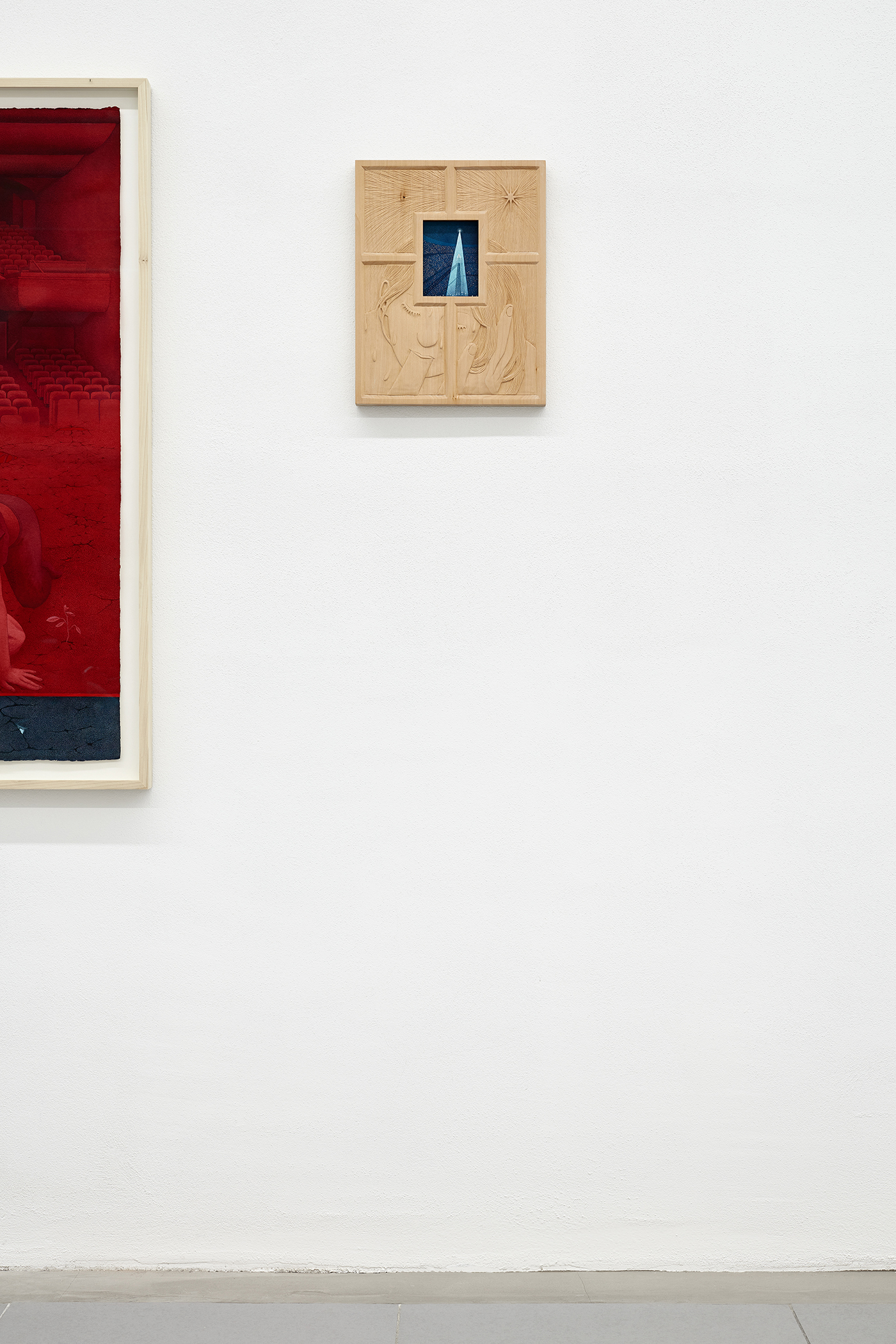
Oda Iselin Sønderland, "Elsker" installation view.
![Oda Iselin Sønderland, "Hvitt Hull" ["White Hole"], 2024 (Watercolour and gouache on paper, basswood, UV glass, 39,5 x 30,5 cm).](https://backend.kubaparis.com/submissions/2024/06/13/Elsker/5.jpg?v=1718296439)
Oda Iselin Sønderland, "Hvitt Hull" ["White Hole"], 2024 (Watercolour and gouache on paper, basswood, UV glass, 39,5 x 30,5 cm).
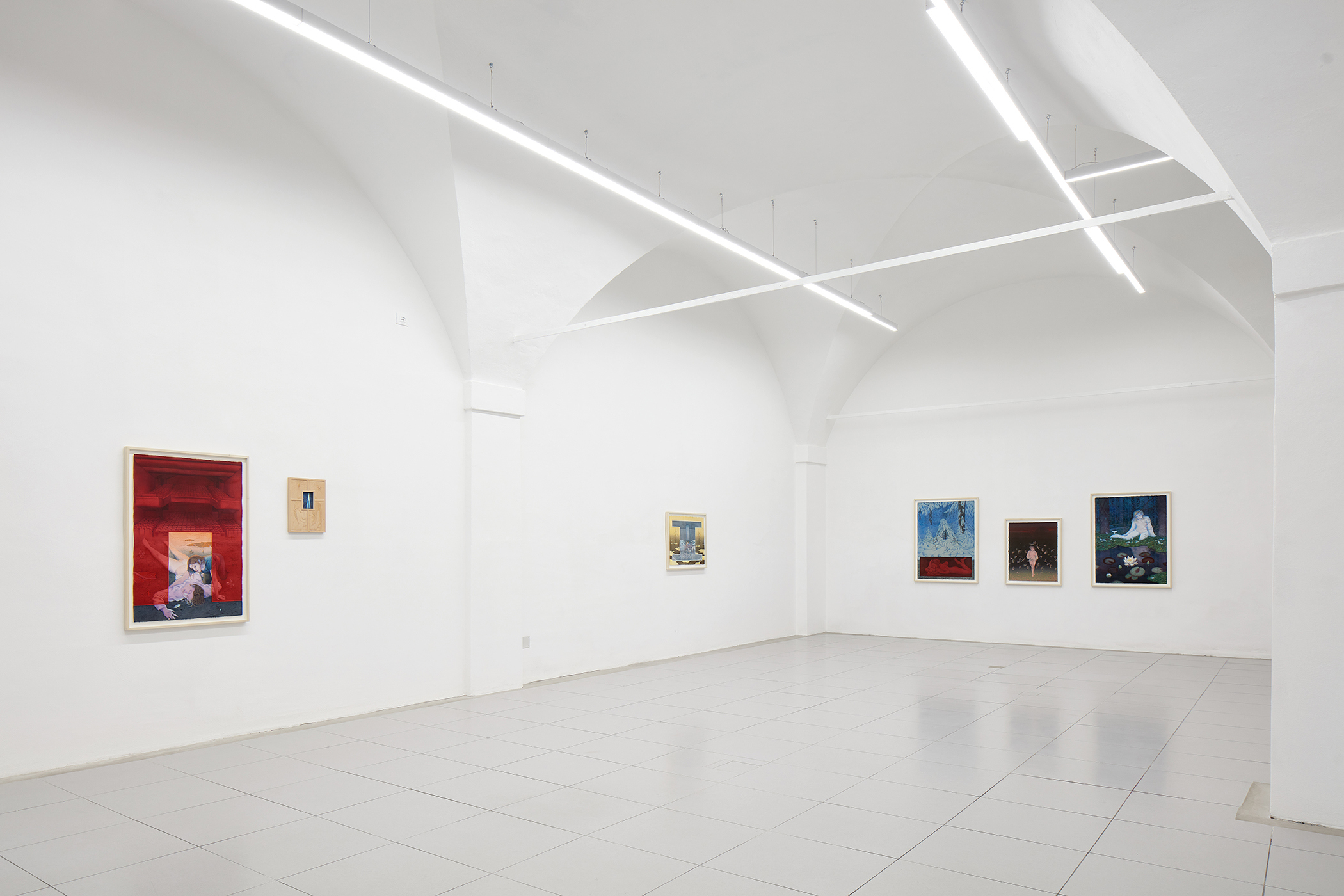
Oda Iselin Sønderland, "Elsker" installation view.
![Oda Iselin Sønderland, "Lille Død" ["Little Death"], 2024 (Watercolour and gouache on paper, frame, 65,7 x 86,7 cm).](https://backend.kubaparis.com/submissions/2024/06/13/Elsker/7.jpg?v=1718296440)
Oda Iselin Sønderland, "Lille Død" ["Little Death"], 2024 (Watercolour and gouache on paper, frame, 65,7 x 86,7 cm).
![Oda Iselin Sønderland, "Lille Død" ["Little Death"], 2024 (Watercolour and gouache on paper, frame, 65,7 x 86,7 cm).](https://backend.kubaparis.com/submissions/2024/06/13/Elsker/8.jpg?v=1718296441)
Oda Iselin Sønderland, "Lille Død" ["Little Death"], 2024 (Watercolour and gouache on paper, frame, 65,7 x 86,7 cm).
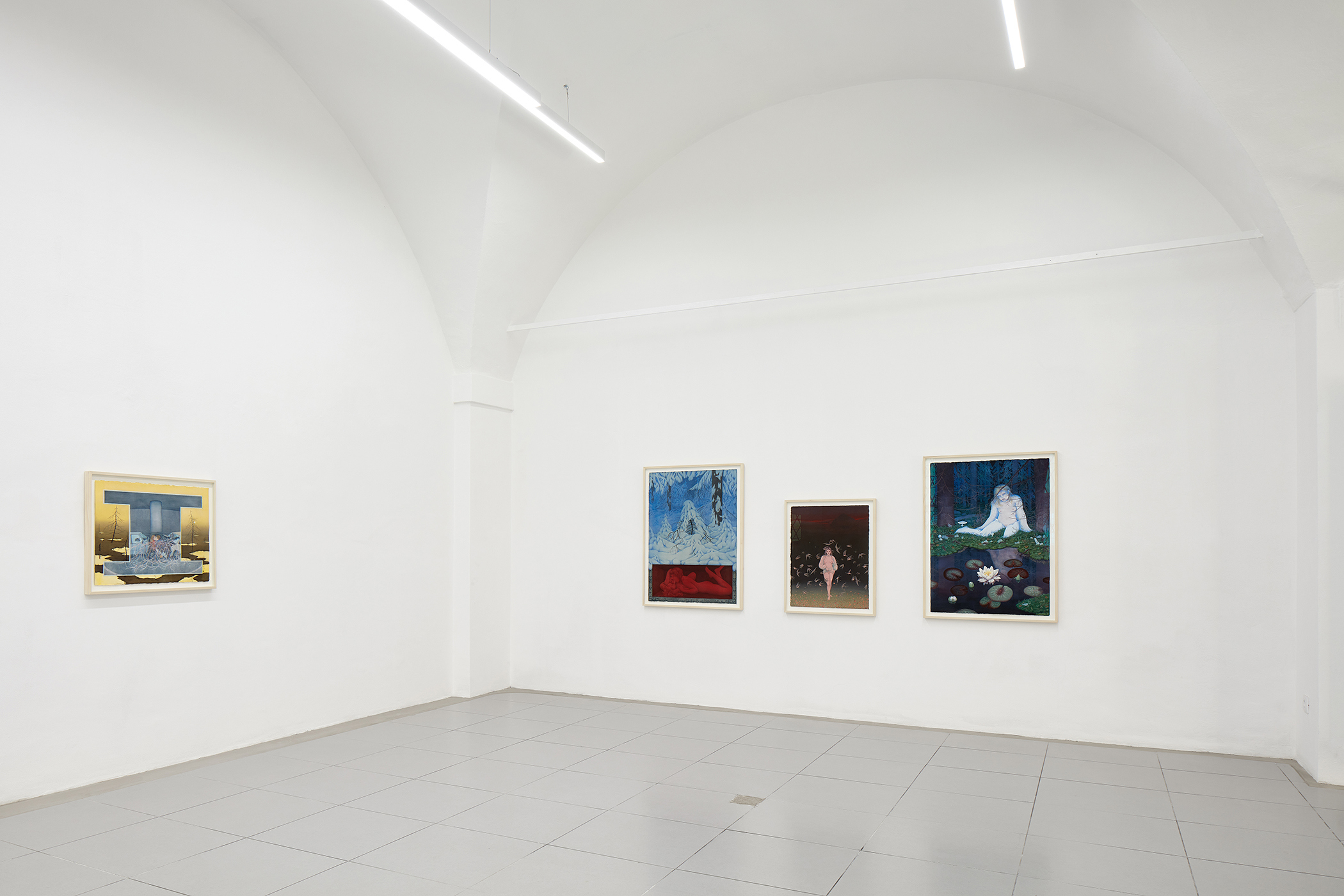
Oda Iselin Sønderland, "Elsker" installation view.
![Oda Iselin Sønderland, "Fristeren" ["The Tempter"], 2024, Watercolour and gouache on paper, frame, 115,5 x 84,2 cm).](https://backend.kubaparis.com/submissions/2024/06/13/Elsker/10.jpg?v=1718296442)
Oda Iselin Sønderland, "Fristeren" ["The Tempter"], 2024, Watercolour and gouache on paper, frame, 115,5 x 84,2 cm).
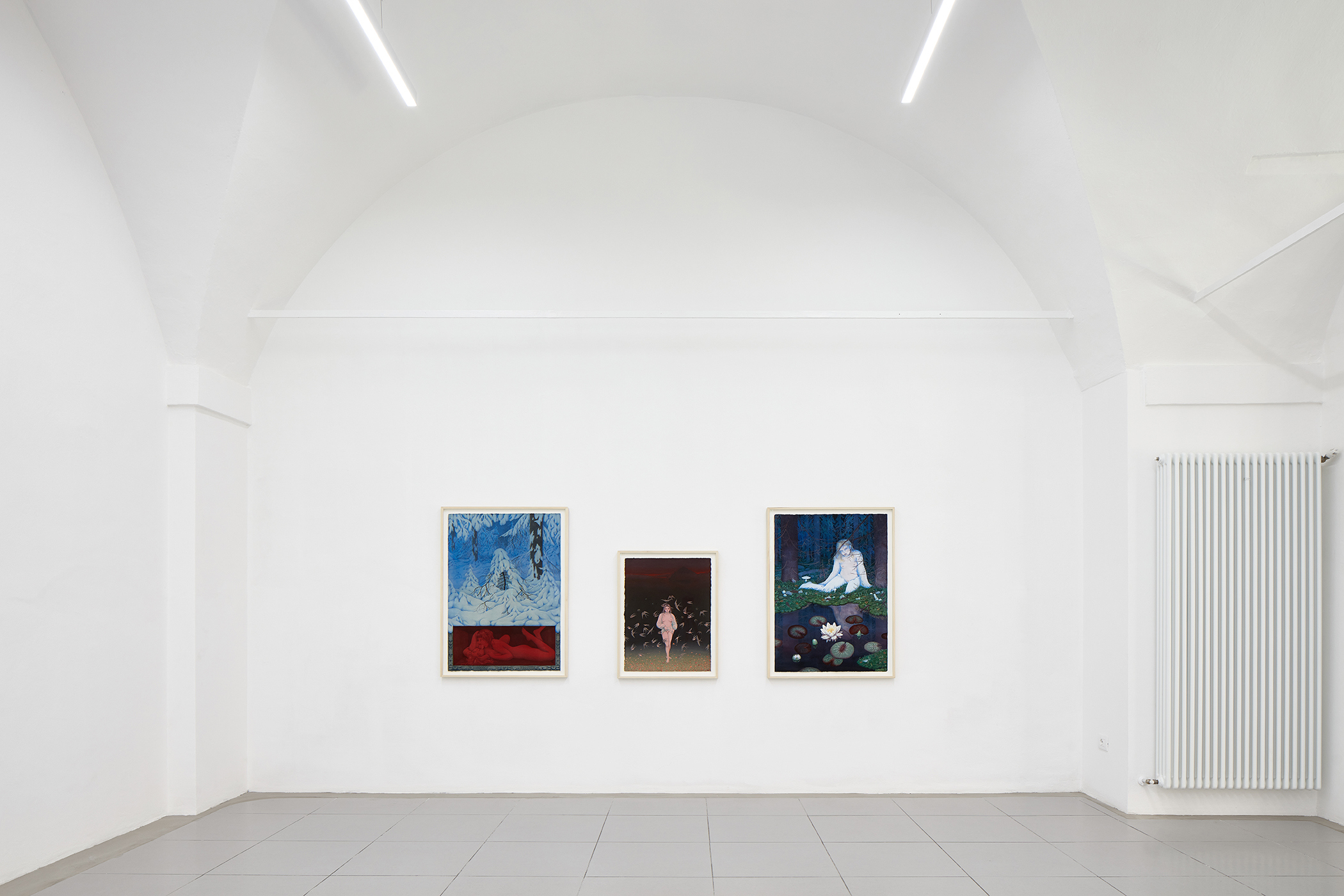
Oda Iselin Sønderland, "Elsker" installation view.
![Oda Iselin Sønderland, "Lytteren" ["The Listener"], 2024 (Watercolour, flashe and gouache on paper, frame, 86,7 x 65,7 cm).](https://backend.kubaparis.com/submissions/2024/06/13/Elsker/12.jpg?v=1718296443)
Oda Iselin Sønderland, "Lytteren" ["The Listener"], 2024 (Watercolour, flashe and gouache on paper, frame, 86,7 x 65,7 cm).
![Oda Iselin Sønderland, "Riket" ["The Kingdom"], 2023 (Watercolour and gouache on paper, frame, 115,5 x 84,2 cm).](https://backend.kubaparis.com/submissions/2024/06/13/Elsker/13.jpg?v=1718296444)
Oda Iselin Sønderland, "Riket" ["The Kingdom"], 2023 (Watercolour and gouache on paper, frame, 115,5 x 84,2 cm).
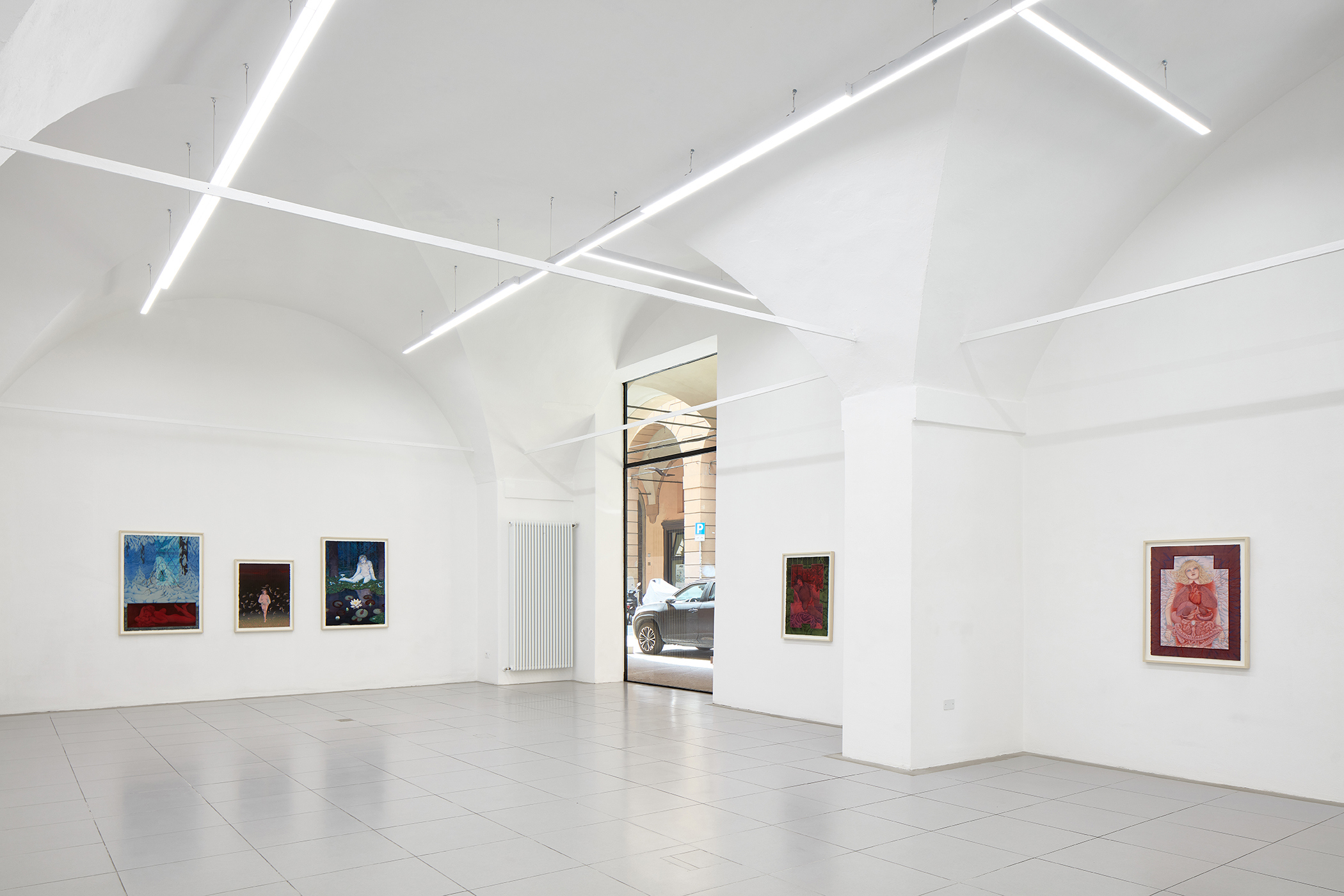
Oda Iselin Sønderland, "Elsker" installation view.
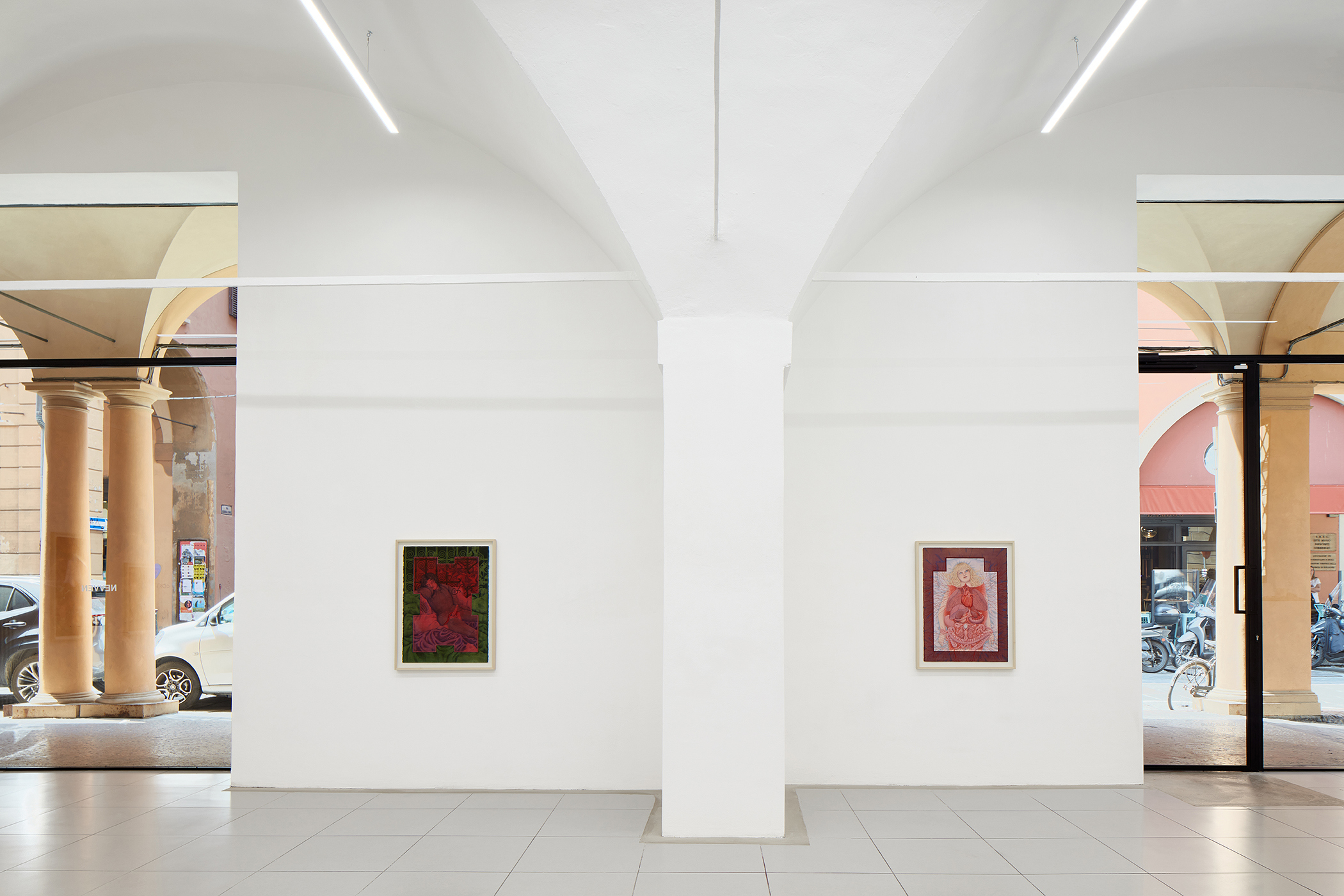
Oda Iselin Sønderland, "Elsker" installation view.
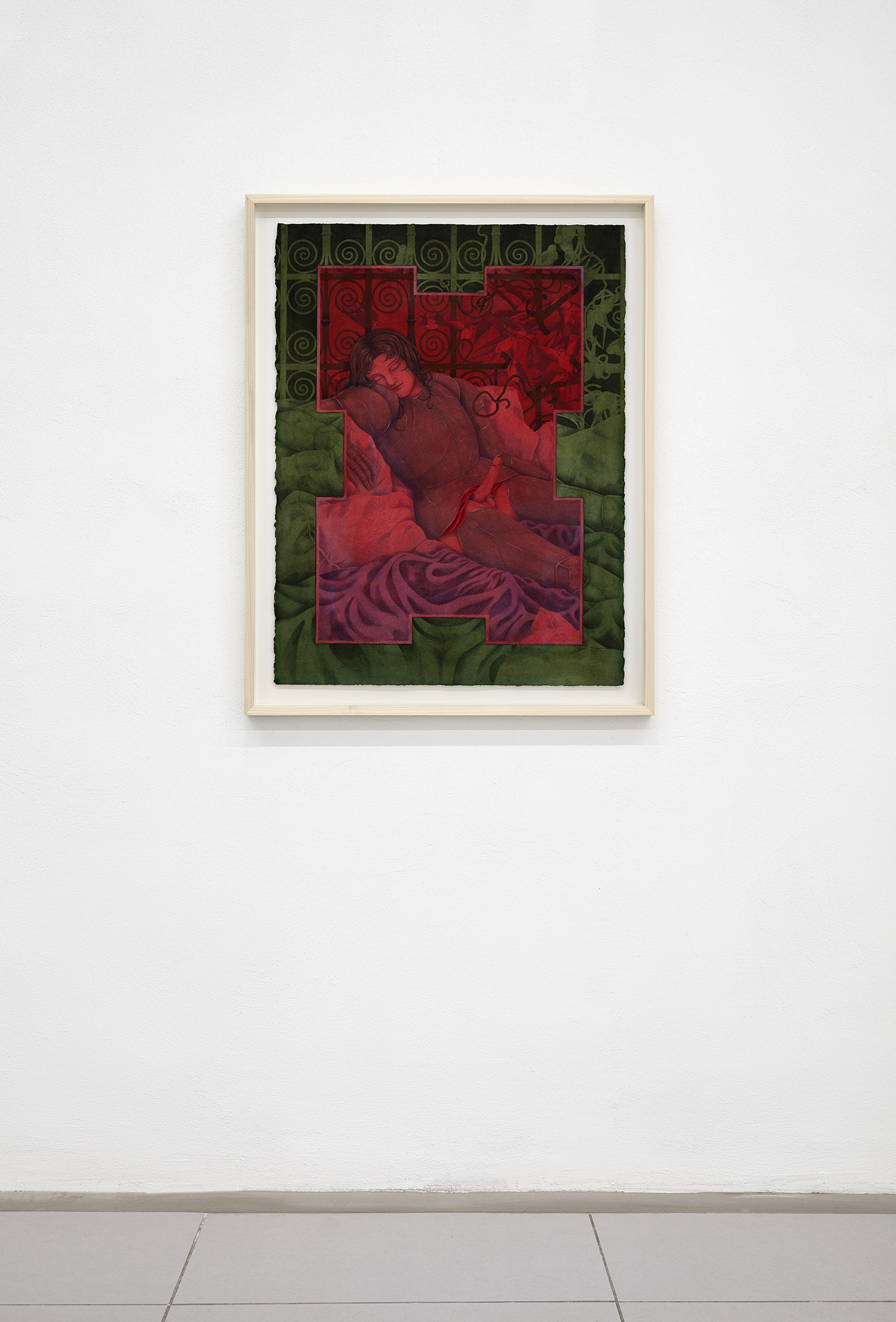
Oda Iselin Sønderland, "Mars", 2024 (Watercolour and gouache on paper, frame, 86,7 x 65,7 cm).
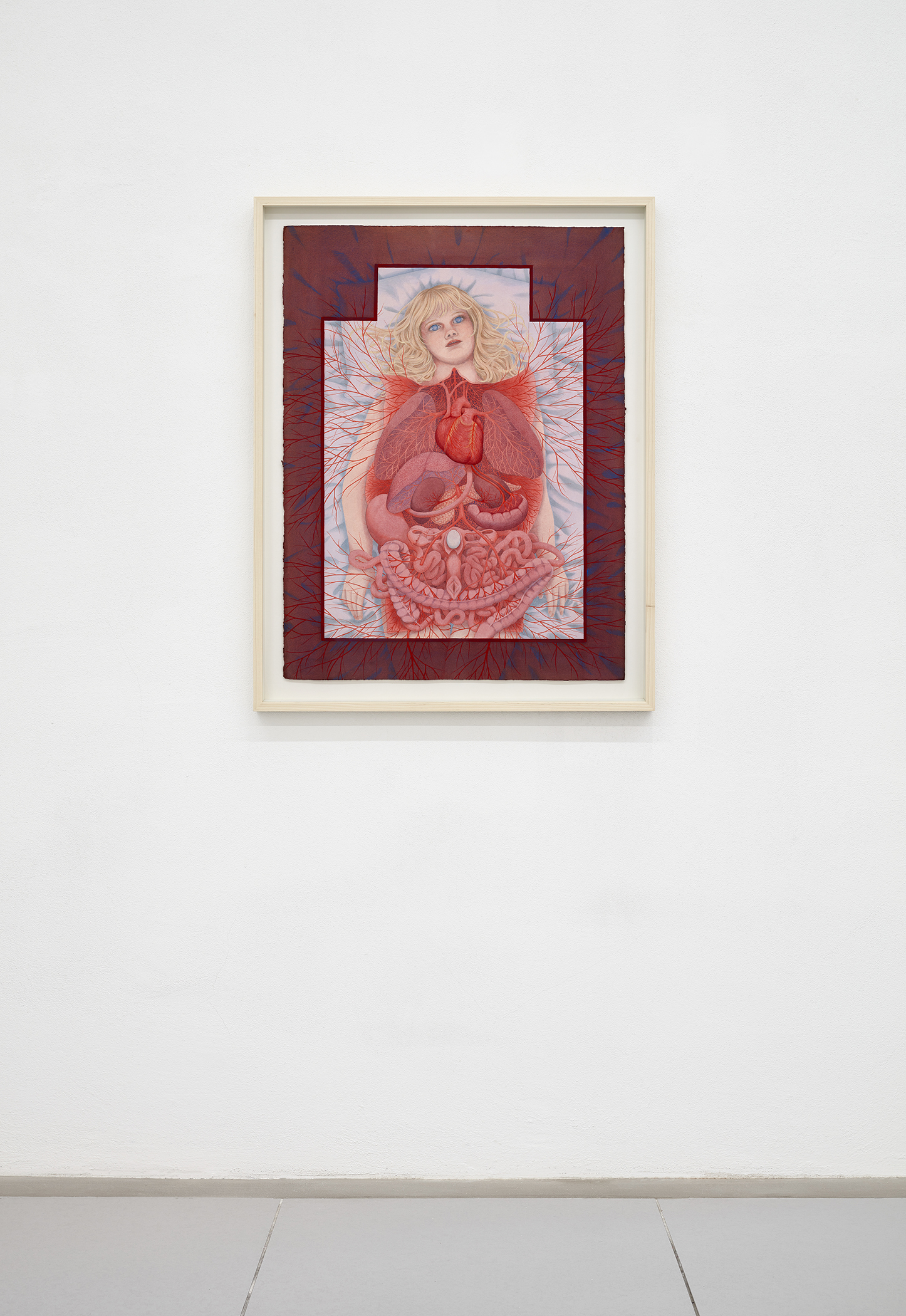
Oda Iselin Sønderland, "Venus", 2024 (Watercolour, flashe and gouache on paper, frame, 86,7 x 65,7 cm).
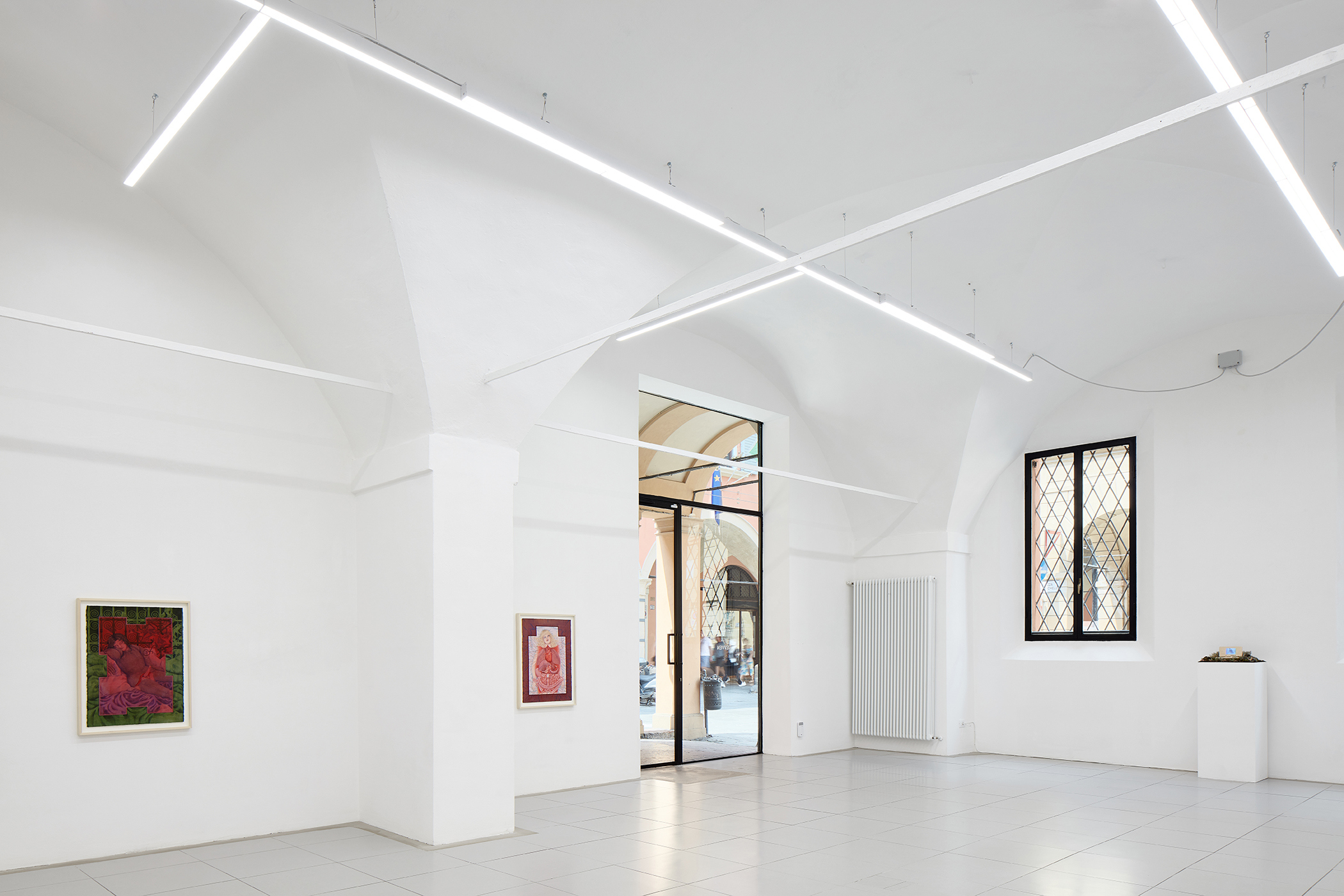
Oda Iselin Sønderland, "Elsker" installation view.
![Oda Iselin Sønderland, "Solveigs Sang" ["Solveig’s Song"], 2024 (Two channel video, 5min, 50sec. Birch wood, Raspberry Pi 4, LED screens, soil and undergrowth foraged from the forests outside Oslo, Norway, dimensions variable).](https://backend.kubaparis.com/submissions/2024/06/13/Elsker/19.jpg?v=1718296447)
Oda Iselin Sønderland, "Solveigs Sang" ["Solveig’s Song"], 2024 (Two channel video, 5min, 50sec. Birch wood, Raspberry Pi 4, LED screens, soil and undergrowth foraged from the forests outside Oslo, Norway, dimensions variable).
![Oda Iselin Sønderland, "Solveigs Sang" ["Solveig’s Song"], 2024 (Two channel video, 5min, 50sec. Birch wood, Raspberry Pi 4, LED screens, soil and undergrowth foraged from the forests outside Oslo, Norway, dimensions variable).](https://backend.kubaparis.com/submissions/2024/06/13/Elsker/20.jpg?v=1718296448)
Oda Iselin Sønderland, "Solveigs Sang" ["Solveig’s Song"], 2024 (Two channel video, 5min, 50sec. Birch wood, Raspberry Pi 4, LED screens, soil and undergrowth foraged from the forests outside Oslo, Norway, dimensions variable).
The winter may pass and the spring disappear,
the summer too will vanish and then the year.
But this I know for certain: thou’lt come back again;
And e’en as I promised, thou’lt find me waiting then.
God help thee, when wand’ring thy way all alone,
God grant thee his strength as thou kneel’st at his throne.
If thou now art waiting in heav’n for me,
O there we’ll meet again love and never parted be!
Henrik Ibsen(1)
Oda Iselin Sønderland’s art finds its foundations in a very specific place. It is a hidden, warm and soft spot, both metaphorically and literally, a place like the lush and green, mossy underwood in which the artist dances, impersonating one of her own characters, in her first ever video installation which completes the new body of large sized paintings composing "Elsker". Not only green and welcoming, it is also a snowy and cold Norwegian forest we are brought to in the same two channel video, where the artist wades through high snow, and where, despite the harsh and apparently inhospitable conditions, she appears at home. One could see these places as an inspiration, a recurring imaginary that is repeated and found in many of the works by the Norwegian-Irish artist, but one should see them also as a physical representation of the inner landscape which is the focus of all her art. That is in fact what one sees when they look at Oda Iselin Sønderland’s art: a very clearly defined aesthetic, a world of knights and woodlands, a place at the meeting point between Norse mythology and video games, inhabited by ethereal creatures, looking for each other, but often just for their own selves. This research of the self is in fact what we are shown with, and within, the metaphors, a young woman and her inner world, her imagination and desires, feelings and fears. "Elsker" means "love" in Norwegian, not in the broad usage that English language has for that word, but in a deeper and more specifically romantic, or familiar, meaning. It is a verb with a heavy connotation and also a noun that translates as "lover", hence holding “both the romantic and erotic aspect of love, but also the deep, deep feeling of love, and the action of loving.”(2) Hence, in this broad interpretation, love and desire become all that this new body of works are about, “[l]ove in its different forms, romantic love, love as a force in nature, or even the concept of love. Does love exist? Is love idealistic, and desire a natural reality? Or is love the reality, and desire just a fantasy? What is the difference between love and desire, and how are they connected?”(3) And for as much as common these musings might sound, whilst repeated through ages of poetry and art, does anybody have a straight answer to these questions? With "Elsker", Sønderland proceeds to respond to these questions, emotionally, erotically and spiritually. The representation of roles as per mythological stereotypes of masculinity and femininity is exaggerated and illustrated with "Venus" and "Mars", of which, if the feminine figure cut open in an extreme representation of acceptance is striking, even more it is the erected penis of its male looking counterpart, that peeking out of its armour is immediately transformed from a symbol of power to an easy-to-spot weakness. The philosophical and emotional baggage connected to love and desire is declined through works like "Sort Hull", "Vit Hull", "Lille Død" and "Lytteren", where female figures expose themselves in complete acceptance, and are drawn to their counterparts in despair, elation, or emotional car crashes. The deep connection with nature, and especially the Nordic forests, which is ever present in Sønderland’s work is at its highest in the remaining works, "Riket", "Fristeren" and "Solveigs Sang", where, wintery and summery, fecund and deadly, we find represented the true heart of this practice, the visual poetic of an artist that completes this body of paintings becoming part of it, and physically showing herself for the very first time in a video installation.(4) There, in her dear forests, she is waiting for her lover and trying to make sense of what that feeling she feels is, in winter and spring, as the character in Ibsen’s song.
_
(1) P. Grieg and H. Ibsen, "Peer Gynt" (1867). Translated by E. M Smyth.
(2) Excerpt from a written conversation with the artist.
(3) Excerpt from a written conversation with the artist.
(4) The artist is in fact the woman starring in "Soveigs Sang", 2024. Two channel video, 5min, 50sec. Birch wood, Raspberry Pi 4, LED screens, soil and undergrowth foraged from the forests outside Oslo, Norway, dimensions variable.
Mattia Lullini

